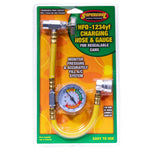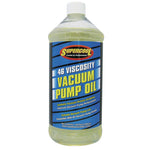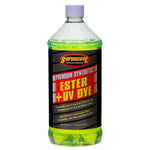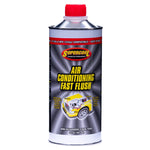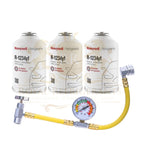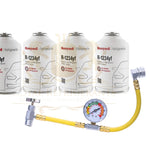You have no items in your shopping cart.
Everything You Need to Know About Honeywell R1234yf Refrigerant for HVAC and Automotive Applications
As global regulations push the HVAC and automotive industries toward more eco-friendly solutions, refrigerants with low global warming potential (GWP) are becoming essential. One of the most advanced and widely adopted options today is Honeywell R1234yf refrigerant. Known for its outstanding performance, environmental benefits, and compatibility with modern systems, R1234yf is rapidly replacing older refrigerants like R134a in both vehicles and commercial cooling systems.
In this article, we’ll explore what Honeywell R1234yf is, why it matters, its key benefits, uses in HVAC and automotive systems, cost considerations, and how to choose the right product for your needs.
What Is Honeywell R1234yf Refrigerant?
Honeywell R1234yf, also marketed under the Solstice® brand, is a hydrofluoro-olefin (HFO) refrigerant designed to replace high-GWP hydrofluorocarbons like R134a. It is a fourth-generation refrigerant with a global warming potential of less than 1, making it nearly carbon-neutral compared to older alternatives.
Key technical facts:
- Chemical name: 2,3,3,3-Tetrafluoropropene
- GWP: <1 (compared to R134a’s ~1300)
- ASHRAE designation: R1234yf
- Safety classification: A2L (mildly flammable, low toxicity)
Because of these properties, Honeywell R1234yf meets or exceeds current and future environmental regulations, including those under the Kigali Amendment and EU F-Gas Regulation.

Why Choose R1234yf Over Traditional Refrigerants?
Older refrigerants like R134a and R22 are being phased out because of their high global warming potential and environmental impact. R1234yf offers significant advantages:
- 🌱 Ultra-Low GWP: With a GWP below 1, R1234yf drastically reduces greenhouse gas emissions.
- ♻️ Regulatory Compliance: It meets strict international climate targets and is approved in regions where R134a is banned or restricted.
- 🚗 OEM Standard: Most new vehicles from major automakers now come pre-filled with R1234yf instead of R134a.
- 🧊 Efficient Cooling Performance: Comparable cooling capacity to R134a, with enhanced energy efficiency in many systems.
- 🔄 Retrofit Potential: Can be used to replace R134a in certain systems with minimal modification.
Automotive Applications of Honeywell R1234yf
The automotive industry is the biggest driver behind R1234yf adoption. Since 2017, many global car manufacturers — including Ford, GM, Mercedes-Benz, Toyota, and Honda — have transitioned from R134a to R1234yf to meet emission standards.
Benefits in automotive systems:
- Maintains optimal cabin cooling performance
- Reduces vehicle carbon footprint
- Helps automakers comply with EU and U.S. refrigerant regulations
- Compatible with existing service tools and equipment (with minor adjustments)
Common automotive uses:
- Passenger car air conditioning systems
- Electric vehicle (EV) battery thermal management
- Heavy-duty vehicle A/C systems
HVAC and Commercial Cooling Uses
While R1234yf is most popular in vehicles, its eco-friendly profile is making it attractive for light commercial and residential HVAC applications as well.
- Suitable for smaller systems and new-generation air conditioners
- Helps companies meet refrigerant phase-down targets
- Reduces overall greenhouse gas emissions in commercial operations
- Ideal for equipment designed specifically for low-GWP refrigerants
As sustainability targets tighten, the use of R1234yf and similar HFOs in chillers, heat pumps, and commercial cooling is expected to grow significantly.
Cost and Availability of Honeywell R1234yf
Because of its advanced chemistry and strict production standards, R1234yf refrigerant is typically more expensive than older options like R134a. On average:
- Cost per 8–12 oz can (automotive): $35–$55
- Cost per 10 lb cylinder (HVAC/industrial): $400–$600
However, the cost is offset by regulatory compliance, environmental incentives, and long-term savings in energy efficiency and system performance.
✅ Pro Tip: Always buy genuine Honeywell Solstice® R1234yf from authorized distributors to ensure purity, safety, and compliance.
Safety and Handling Considerations
R1234yf is classified as A2L, meaning it is mildly flammable but poses low toxicity risk. When handled correctly, it is safe and stable for use in both automotive and HVAC systems.
- Store cylinders in a cool, well-ventilated space
- Use certified recovery and charging equipment
- Follow manufacturer instructions for retrofitting older systems
Future of Refrigerants: Why R1234yf Leads the Way
Global environmental policies are shifting the HVAC and automotive industries toward next-generation, low-GWP refrigerants. With its unmatched combination of performance, sustainability, and compliance, Honeywell R1234yf is positioned as a key refrigerant of the future.
It’s not just a replacement — it’s a strategic investment in a cleaner, more efficient future for cooling systems.
Final Thoughts
Honeywell R1234yf refrigerant is more than just a drop-in replacement — it’s a next-generation solution that helps businesses and vehicle owners meet regulatory demands, improve system performance, and reduce environmental impact. Whether you’re upgrading an automotive A/C system or designing new HVAC equipment, R1234yf delivers reliability, efficiency, and sustainability in one package.
If you’re looking for a trusted, environmentally responsible refrigerant that meets today’s standards and tomorrow’s challenges, Honeywell R1234yf is the smart choice.
 English
English

